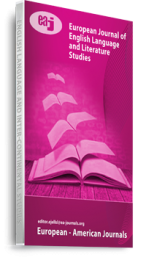The impact of Gender in EFL classroom has always been an issue of discussion. With the difference of social and cultural background, the role of gender differs from nation to nation. In Bangladesh, gender role is defined based on social, cultural, and traditional beliefs. This study is an attempt to find out whether genders of learners as well as genders of teachers create barriers in EFL learning in Bangladesh. In the study a number of 198 students responded to the questionnaires prepared for a survey to find out the impact of gender of students and teachers in EFL classroom. Adding to this, 20 students and 9 teachers from a university further illustrated this issue by participating in semi-structured open ended interviews. The findings of this mixed method study reveal that the socio-culturally defined gender role of male and female in the society impacts inside English as a foreign language class in Bangladesh. Self-efficacy of teachers and learners may help address the issue. In this regard, emphasis may be put on teacher self-efficacy to raise awareness among the teachers and learner self-efficacy to help learners to consciously avoid gender discrimination in classroom at the tertiary level.
Keywords: Culture, EFL learning, Gender, Self-Efficacy, Teacher, learner

